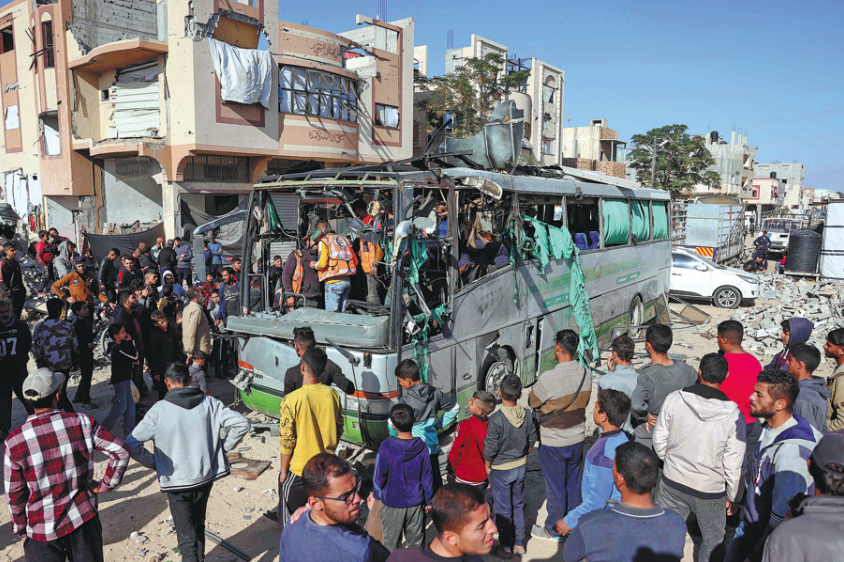Israel admits killing Hamas chief Haniyeh
Updated: 2024-12-25 11:09

JERUSALEM — Israeli Defense Minister Israel Katz admitted on Monday for the first time to Israel's killing of former Hamas chief Ismail Haniyeh in Iran in July.
Speaking at a Defense Ministry event, Katz also issued a warning to Houthi forces in Yemen after they launched another drone attack earlier on Monday, which the Israeli military said was intercepted by its air defense systems.
"We will strike hard at the Houthis... and decapitate their leadership — just as we did with Haniyeh, (Yahya) Sinwar and (Hassan) Nasrallah in Teheran, Gaza and Lebanon, we will do so in Hodeida and Sanaa," Katz said, according to a statement issued by the ministry.
Until now Israel had never admitted to killing Haniyeh, but Iran and Hamas had accused it of carrying out the assassination.
Haniyeh was killed in a guesthouse in Teheran on July 31, reportedly by an explosive device that had been placed by Israeli operatives weeks before.
A day earlier, Haniyeh attended the inauguration of Iranian President Masoud Pezeshkian.
On Sept 27, Israel killed Hezbollah leader Nasrallah in a Beirut bombing, which was followed by the killing of Haniyeh's successor Sinwar on Oct 16 in Gaza.
Israeli officials said Sinwar masterminded the Oct 7, 2023, attack by Hamas on Israel, which sparked Israel's current military campaign in the Gaza Strip.
The Palestinian enclave's health ministry said on Tuesday that Israel's offensive has killed at least 45,338 Palestinians, including 21 in the past 24 hours.
Israeli Prime Minister Benjamin Netanyahu told lawmakers on Monday that "some progress" had been made in negotiations to secure the release of hostages held in Gaza, more than 14 months into the conflict.
His comments in parliament came two days after Palestinian militant groups also talked of progress toward a cease-fire and hostage release deal.
Rekindling hope
In recent days, indirect negotiations between Israel and Hamas mediated by Qatar, Egypt and the United States took place in Doha, rekindling hope of an agreement that has proved elusive.
Hostage families have questioned the sincerity of government negotiation efforts, and critics have long accused Netanyahu of stalling truce talks, prolonging the conflict partly to appease his far-right coalition partners.
Tom Fletcher, United Nations under-secretary-general for humanitarian affairs and emergency relief coordinator, said on Monday that the continued violence has left Gaza civilians with nowhere safe to go.
Fletcher described in a statement the dire humanitarian crisis in Gaza, where airstrikes on densely populated areas, including zones designated by Israeli forces as relocation sites, have resulted in widespread destruction, displacement and loss of life.
He also reported a collapse of law and order in Gaza, with armed gangs systematically looting humanitarian supplies, further obstructing relief efforts.
Despite the overwhelming humanitarian needs, Fletcher revealed that Israeli authorities have consistently denied UN access to delivering aid, rejecting more than 100 requests to enter northern Gaza since Oct 6. The blockade has left the region under near-total siege for almost two months, raising fears of famine.
Meanwhile, overcrowding in southern Gaza has created severe living conditions, which continue to deteriorate as winter exacerbates humanitarian needs, he added.
Agencies-Xinhua
























